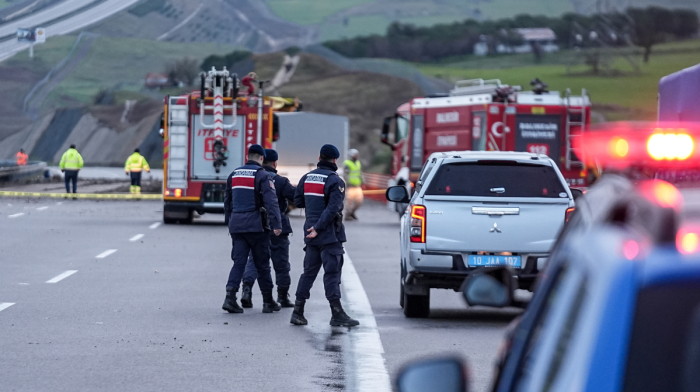Iceland has classified the possible collapse of a major Atlantic Ocean current system as a national security risk and existential threat, as concerns grow over the impact of warming Arctic waters.
Iceland has formally declared the potential collapse of the Atlantic Meridional Overturning Circulation (AMOC) a national security concern, marking the first time a climate-related phenomenon has been elevated to such status in the country, the climate minister told Reuters on Wednesday.
The AMOC, which carries warm tropical waters northwards toward Europe, plays a key role in moderating winter temperatures across Northern Europe. Scientists warn the system is weakening as Arctic ice melts and cold freshwater from Greenland flows into the ocean, disrupting the current’s balance.
“It is a direct threat to our national resilience and security,” said Climate Minister Johann Pall Johannsson. “This is the first time a specific climate-related phenomenon has been formally brought before the National Security Council as a potential existential threat.”
The move enables Iceland’s government to begin disaster planning and coordinate across ministries. Risks being assessed include food and energy security, transport, and the resilience of infrastructure. A disaster preparedness policy is already under development.
A collapse of the AMOC could bring extreme cold and snow to Northern Europe, while disrupting global weather patterns. According to scientists, rainfall relied on by subsistence farmers in Africa, South Asia and South America could be significantly affected. It may also accelerate warming and ice loss in Antarctica.
The AMOC has shut down in the past, notably before the last Ice Age around 12,000 years ago.
Some scientists say the risk is more immediate than previously thought. “The tipping point may well be quite close,” warned Stefan Rahmstorf, a climatologist at Germany’s Potsdam Institute for Climate Impact Research.
The Nordic Council of Ministers hosted a summit in October, bringing together 60 experts to assess the societal impacts of AMOC failure. Organisers said recommendations from the workshop will be published shortly.
Other Northern European countries are also increasing scrutiny of the issue. Ireland’s meteorological office said it had recently briefed both the prime minister and parliament. Norway is expanding its research before considering whether to designate AMOC a national security risk. The UK has committed over £81 million (about $99 million) in climate tipping point research, though its government currently believes a sudden collapse this century is unlikely.
Johannsson said Iceland cannot afford to wait for “definitive, long-term research” as the pace of Arctic warming intensifies. “Sea ice could affect marine transport; extreme weather could severely affect our capabilities to maintain any agriculture and fisheries, which are central to our economy and food systems,” he said.
















What is your opinion on this topic?
Leave the first comment